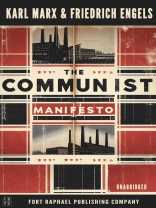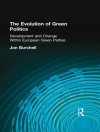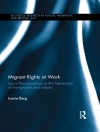‘The Communist Manifesto’ is one of the most important and influential political documents ever written. Originally published as a pamphlet in London in 1848, it was written by the German philosophers and political theorists Karl Marx and Friedrich Engels as a means of codifying and clearly expressing the goals and tenets of the Communist movement.
After briefly making it’s way through France and Germany – and inspiring several abortive uprisings in both countries – the document lapsed into obscurity for almost twenty years. But as Marx and Engels became more and more influential in the workers’ movements across Europe, the Manifesto was re-published and re-translated, influencing socialist and communist movements around the world, most particularly in Russia and China.
The central theme of the Manifesto posits that capitalism is exploitative to workers and creates a bourgeoisie class of elites whose purpose is to amass more capitol and maintain their workforce in a subservient, dehumanized state. The alternative they propose is a classless society where private property is abolished, industry is owned and operated collectively by the state, education and healthcare are provided free to the masses and child labor outlawed.
Both hailed as a seminal political document and vilified as a poisonous piece of propaganda, ‘The Communist Manifesto’ remains one of the most important political documents ever published and it is presented here in its original and unabridged format, as translated in 1888.
Circa l’autore
Friedrich Engels (1820-1895) was, like Karl Marx, a German philosopher, historian, political theorist, journalist and revolutionary socialist. Unlike Marx, Engels was born to a wealthy family, but he used his family’s money to spread his philosophy of empowering workers, exposing what he saw as the bourgeoisie’s sinister motives and encouraging the working class to rise up and demand their rights. He wrote several works in collaboration with Marx – most famously ‘The Communist Manifesto’ – and supported Marx financially after he was forced to relocate to London. Following Marx’s death, Engels compiled the second and third volumes of Das Kapital, ensuring that this seminal document would live on. He continued writing for the rest of his life and died in London in 1894.












